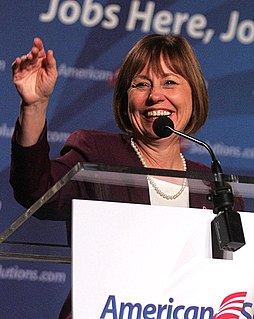A Quote by Raj Chetty
It is well known that unemployment benefits raise unemployment durations.
Quote Topics
Related Quotes
In the name of compassion, Obama advocates seemingly endless extensions of unemployment benefits because his economic theology holds that by paying people not to work, you will create jobs. It not only fails to factor in the obvious deterrent that extended benefits have on their recipients but also falsely assumes that transferring money from one pocket to the next generates more spending - by some mythical multiple factor, no less. Back on planet Earth, studies reveal that extending unemployment benefits results in more unemployment.
You know, there is an argument to be made that these extensions of unemployment benefits keep people from going and finding jobs. In fact there are some studies that have been done that show people stay on unemployment compensation and they don't look for a job until two or three weeks before they know the benefits are going to run out.
I've heard the argument that unemployment benefits somehow act as a disincentive to the long-term unemployed when it comes to looking for work, but the opposite is true. Unemployment Insurance serves as a powerful incentive for people to keep searching for jobs, rather than drop out of the labor force altogether.
Because tax cuts create an incentive to increase output, employment, and production, they also help balance the budget by reducing means-tested government expenditures. A faster-growing economy means lower unemployment and higher incomes, resulting in reduced unemployment benefits and other social welfare programs.
All of the progress that the US has made over the last couple of centuries has come from unemployment. It has come from figuring out how to produce more goods with fewer workers, thereby releasing labor to be more productive in other areas. It has never come about through permanent unemployment, but temporary unemployment, in the process of shifting people from one area to another.


































